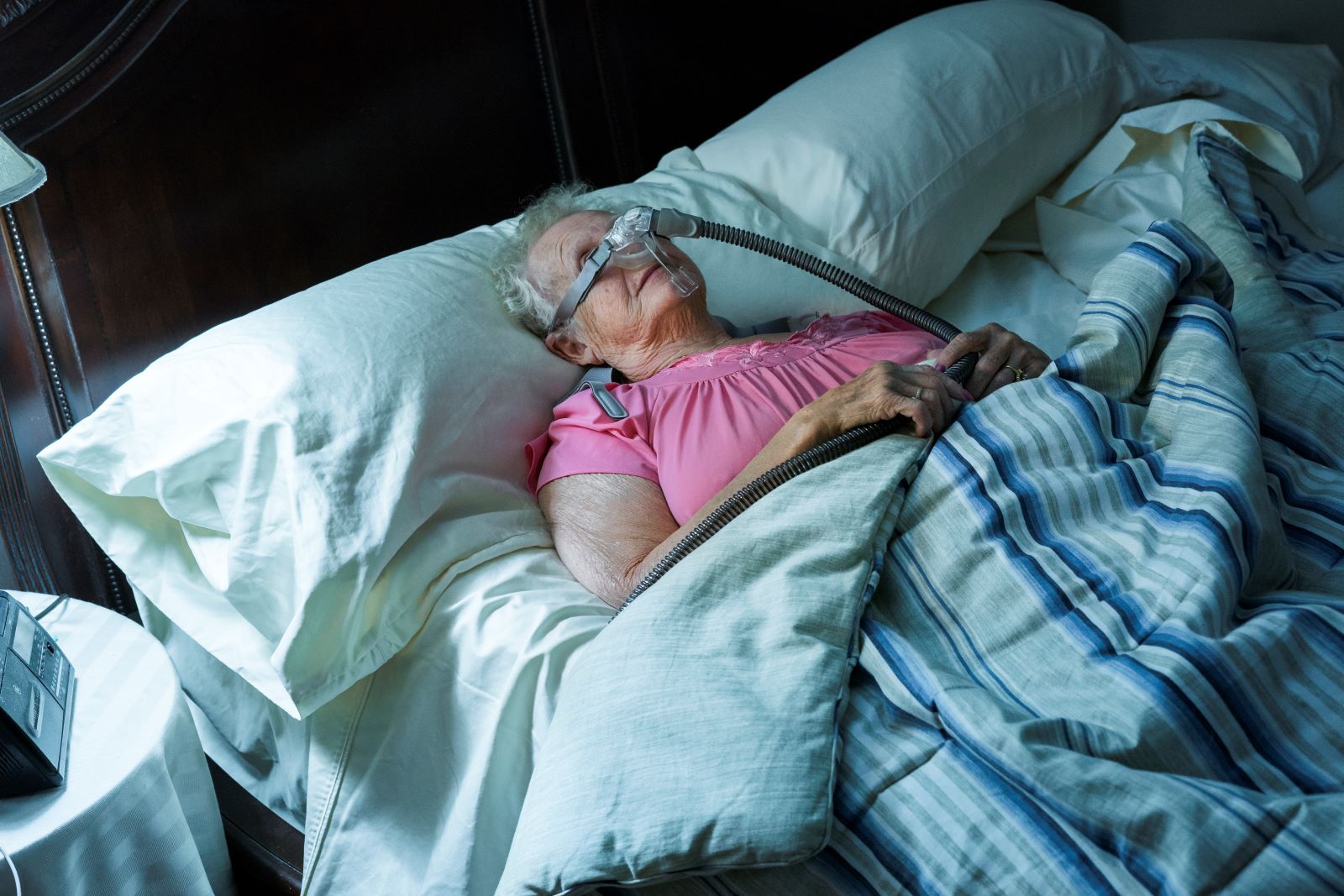<< Back
Can This Sleep Apnea Treatment Reduce Migraines?

May 25, 2022
Often when patients come to the Center for Sleep Medicine at Windham Hospital, they have a referral from a primary care provider or specialist who is seeing them for a medical issue that on the surface might not seem related to sleep.
Although the patient may not have any outward signs of sleep apnea such as loud snoring or “stopping breathing” during sleep, there is a correlation between obstructed sleep apnea (OSA) and medical issues including migraines, hypertension, diabetes, Parkinson’s, atrial fibrillation and other cardiac problems.
“We get a lot of patient referrals in which they ask us to rule out sleep apnea,” said Anna Bunch, a nurse practitioner with the Center for Sleep Medicine (CSM).
Bunch has had several patients who were being treated for migraines, including one woman who was fitted with a PAP device for sleeping. The machine delivers air pressure that assists in resolving the obstruction that causes a drop in their oxygen through a mask during sleep.
Bunch had a follow-up visit recently after the woman started PAP therapy. “Her energy level had improved and she noted a better quality of sleep, but what stuck in my head was her migraine history,” she said. “Previous to PAP therapy she was having two to three migraines a week, now she is having only two to three a month. I was thrilled for her.”
Studies have shown that PAP therapy can significantly reduce migraines. A 2013 study found that PAP therapy improved nocturnal oxygen saturation, stabilized sleep and increased slow wave sleep as a proportion of total sleep time.
“Treating sleep apnea isn’t only about giving patients better quality of sleep,” Bunch said. “It can many times assist in managing other medical conditions such as migraines. I usually tell my patients it’s not only about better sleep and less fatigue but also being preventative. I stress to them that leaving your OSA untreated can put them at risk for a cardiac event, stroke, irregular heart rhythms and blood clots.” Bunch also noted that at CSM, education and support are key components to each patient’s success.
The CSM lab will do a sleep study with the patient, ideally in the Center itself, where the person stays the night. It is also possible to do an at-home study in the comfort of their home if medically appropriate, which is determined by the CSM provider.
In the CSM lab, the patient is connected to a variety of state-of-the-art monitors feeding information to diagnostic computer systems and software under the supervision of one of the sleep technologists. The equipment records data on breathing, pulse oxygen levels, nasal/oral airflow, tracheal noise, body position, chest and abdominal effort, electrical activity in the brain, muscle activity, eye movement and heart rhythm and rate.